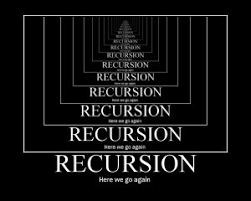Medium
2w
3.4k

Image Credit: Medium
Understanding Recursion: A Programmer’s Superpower
- Recursion is an essential concept in computer science, used for solving algorithmic puzzles and implementing complex data structures like trees and graphs.
- Recursion involves a function calling itself to solve a problem, with examples like calculating factorials or Fibonacci sequences.
- Factorials in recursion involve the function repeatedly calling itself with decreasing values until reaching a base case, with intermediate results stored on a call stack.
- To improve recursion efficiency, memoization (storing results) can be used to prevent redundant calculations.
- Recursion is compared to iteration in terms of style, performance, and readability, with recursion being more elegant but potentially slower due to stack usage.
- Recursion is suitable for divide-and-conquer problems, tree and graph traversals, and mathematical computations like factorials and greatest common divisors.
- However, recursion may not be suitable for cases with large recursion depths, performance-critical loops, or simpler iterations.
- In C++, recursion is a powerful and elegant tool for solving complex problems by breaking them down into smaller sub-problems.
- Recursion can simplify repetitive patterns in code, making it a superpower for programmers.
- Recursion in C++ includes real-world examples, visualization of how it works, and tips for mastering it.
Read Full Article
16 Likes
For uninterrupted reading, download the app